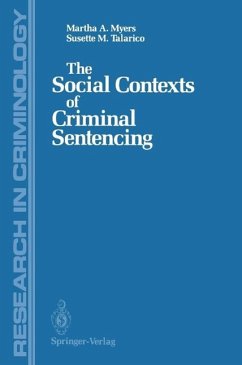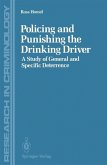Historically, the announcement and invocation of criminal penalties were public spectacles. Today, fear of crime and disaffection with the criminal justice system guarantee that this public fascination with punishment continues. In the past decade, virtually every legislature in the country has undertaken sentencing reform, in the hope that public concern with crime would be allayed and dispari ties in criminal sentences would be reduced if not eliminated. Scholars have intensified their longstanding preoccupation with discrimination and the sources of disparate treatment during sentencing - issues that continue to fuel contem porary reform efforts. As documented in Chapter 1, empirical research on sen tencing has concentrated much of its attention on the offender. Only recently have attempts been made to imbed sentencing in its broader organizational and social contexts. Our study extends these attempts by quantitatively analyzing the relationship between the offender and the social contexts in which he or she is sentenced. We use data on felony sentencing in Georgia between 1976 and 1985 to ask three questions. The first addresses an issue of perennial concern: during sentencing, how important are offender attributes, both those of explicit legal relevance and traits whose legal relevance is questionable or nonexistent? The second question directs attention to the social contexts of sentencing and asks whether they directly affect sentencing outcomes.
Dieser Download kann aus rechtlichen Gründen nur mit Rechnungsadresse in A, B, BG, CY, CZ, D, DK, EW, E, FIN, F, GR, HR, H, IRL, I, LT, L, LR, M, NL, PL, P, R, S, SLO, SK ausgeliefert werden.









